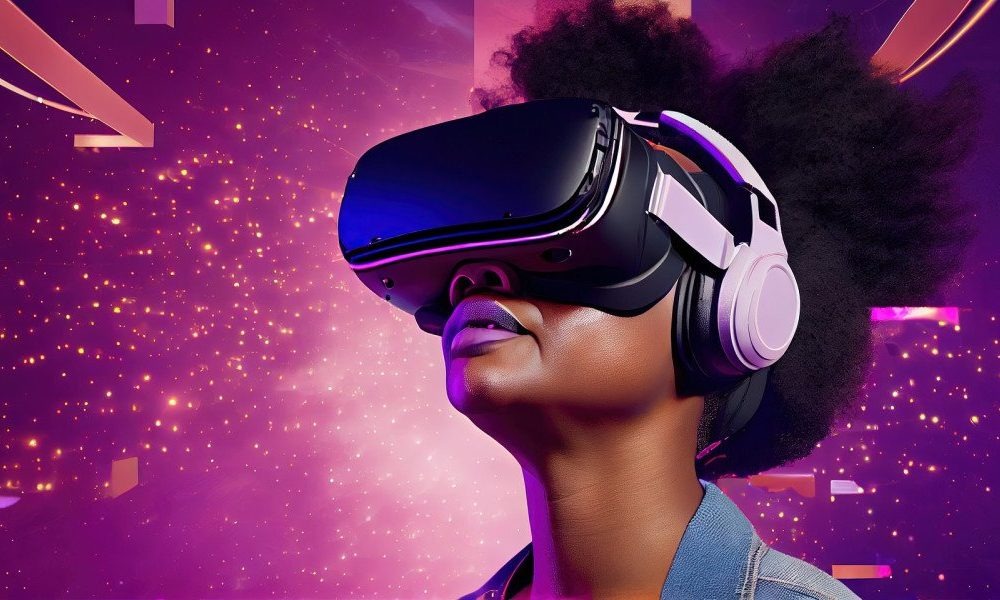Virtual Reality (VR) technology has come a long way since its inception, primarily associated with gaming. While gaming remains a significant part of the VR landscape, there is a new wave of applications that extend far beyond entertainment. In this article, we will delve into the exciting developments in VR technology and explore its applications across various industries, from education to healthcare and beyond.
Expanding Horizons in Education
Revolutionizing Learning Experiences
VR technology has ushered in a revolution in education. It provides immersive, interactive learning experiences that cater to different learning styles. Students can explore historical sites, dive into the human body, or travel through the solar system—all from the comfort of their classrooms. This engagement enhances retention and understanding, making education more accessible and enjoyable.
Bridging the Gap in Remote Learning
The COVID-19 pandemic underscored the importance of remote learning. VR offers a solution by bridging the gap between physical and virtual classrooms. Students can attend classes virtually, interact with teachers and peers, and participate in collaborative projects, creating a seamless remote learning experience.
Transforming Healthcare
Surgical Training and Simulation
VR technology is transforming healthcare by providing a safe and realistic environment for surgical training and simulation. Surgeons can practice complex procedures, reducing the risk for patients. Additionally, VR assists in pain management and therapy, offering distraction and relaxation experiences for patients undergoing medical treatments.
Mental Health and Therapy
Mental health is another area where VR is making a profound impact. Therapists use VR environments to treat phobias, PTSD, and anxiety disorders. Exposure therapy in VR allows patients to confront their fears gradually in a controlled setting, improving outcomes.
Enhancing Architecture and Design
Immersive Design and Visualization
Architects and designers are embracing VR for immersive design and visualization. VR tools enable professionals to walk through virtual buildings, assess designs, and make informed decisions before construction begins. This not only streamlines the design process but also reduces errors and costs.
Virtual Property Tours
In the real estate industry, VR is changing the way properties are marketed. Virtual property tours provide potential buyers with a lifelike experience of walking through homes without leaving their current location. This saves time for both buyers and sellers and enhances the decision-making process.
Advancements in Training and Simulation
Realistic Military Training
The military is using VR for realistic training simulations. Soldiers can practice combat scenarios and vehicle operation in a virtual environment, improving their skills and decision-making abilities. VR training reduces risks associated with traditional training methods.
Industrial Maintenance and Operations
In the industrial sector, VR is used for training technicians and operators. Complex machinery and equipment can be simulated in VR, allowing trainees to familiarize themselves with procedures and troubleshooting techniques. This results in more competent and safer workers.
Future Possibilities and Challenges
Overcoming Technological Barriers
While the potential of VR technology is vast, it is not without challenges. High-quality VR experiences require powerful hardware, which can be expensive. Additionally, issues like motion sickness and the need for user-friendly interfaces must be addressed to make VR more accessible to a broader audience.
Ethical and Privacy Considerations
As VR becomes more integrated into daily life, ethical and privacy concerns arise. The collection and use of user data, virtual addiction, and potential negative consequences on real-world relationships require careful consideration and regulation.
Conclusion
The new wave of VR technology is reshaping industries and experiences far beyond gaming. From education and healthcare to architecture and training, VR’s immersive capabilities offer boundless possibilities. As the technology continues to advance, it is essential to address challenges and ethical concerns to ensure that VR enhances our lives while safeguarding our well-being and privacy. As we look to the future, the integration of VR into various sectors promises a world where virtual and physical realities coexist harmoniously, offering endless opportunities for innovation and growth.

